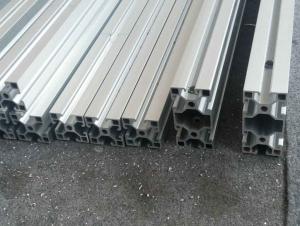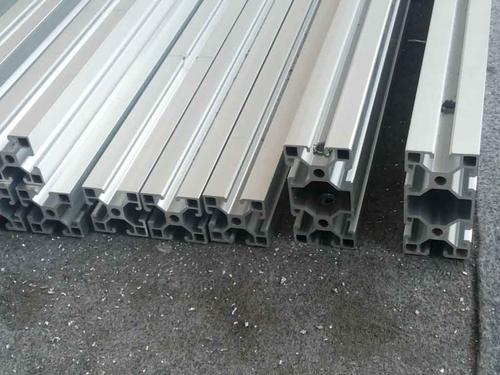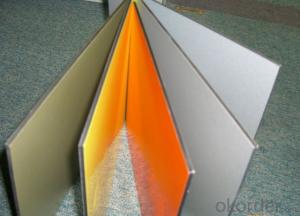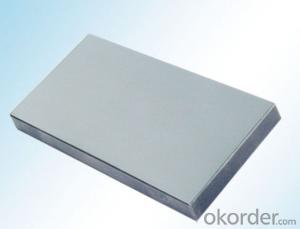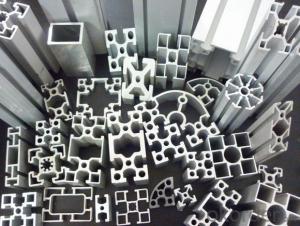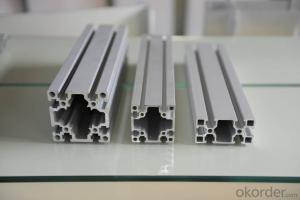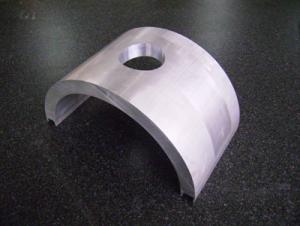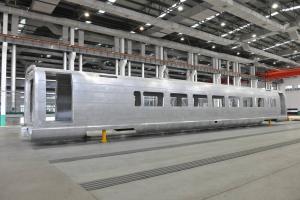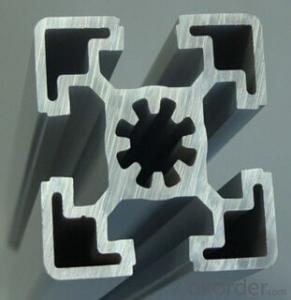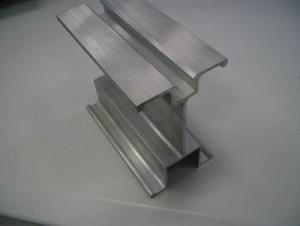Customized Shapes Tread Plate Aluminum Extruded Profiles
- Loading Port:
- Shanghai
- Payment Terms:
- TT OR LC
- Min Order Qty:
- 5 m.t.
- Supply Capability:
- 2000 m.t./month
OKorder Service Pledge
OKorder Financial Service
You Might Also Like
Specification
1.Structure of Customized Shapes Aluminium Extruded profile Description:
Anodizing (also spelled anodising, particularly in the UK and Australia) is an electrolytic passivation process used to increase the thickness of the natural oxide layer on the surface of metal parts. Anodized aluminium surfaces, for example, are harder than aluminium but have low to moderate wear resistance that can be improved with increasing thickness or by applying suitable sealing substances.
2.Main Features of the Customized Shapes Aluminium Extruded profile :
High corrosion-resistance;
weather-resistance;
heat-resistance;
alkali-resistance and impact-resistance properties.
3.Customized Shapes Aluminium Extruded profile Images:
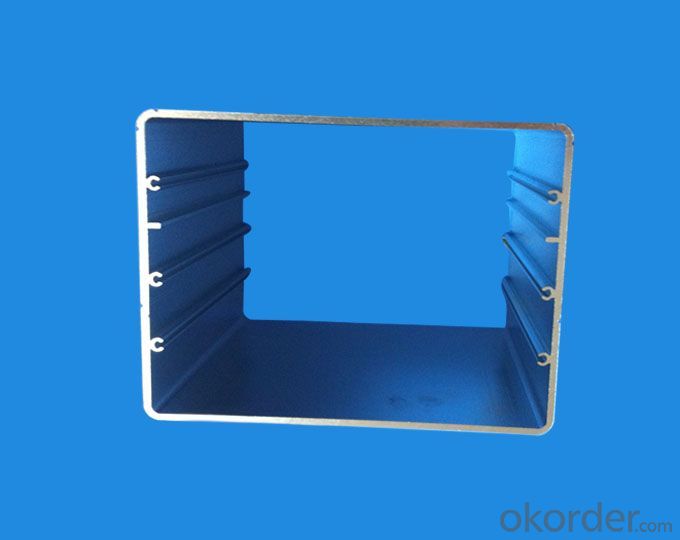
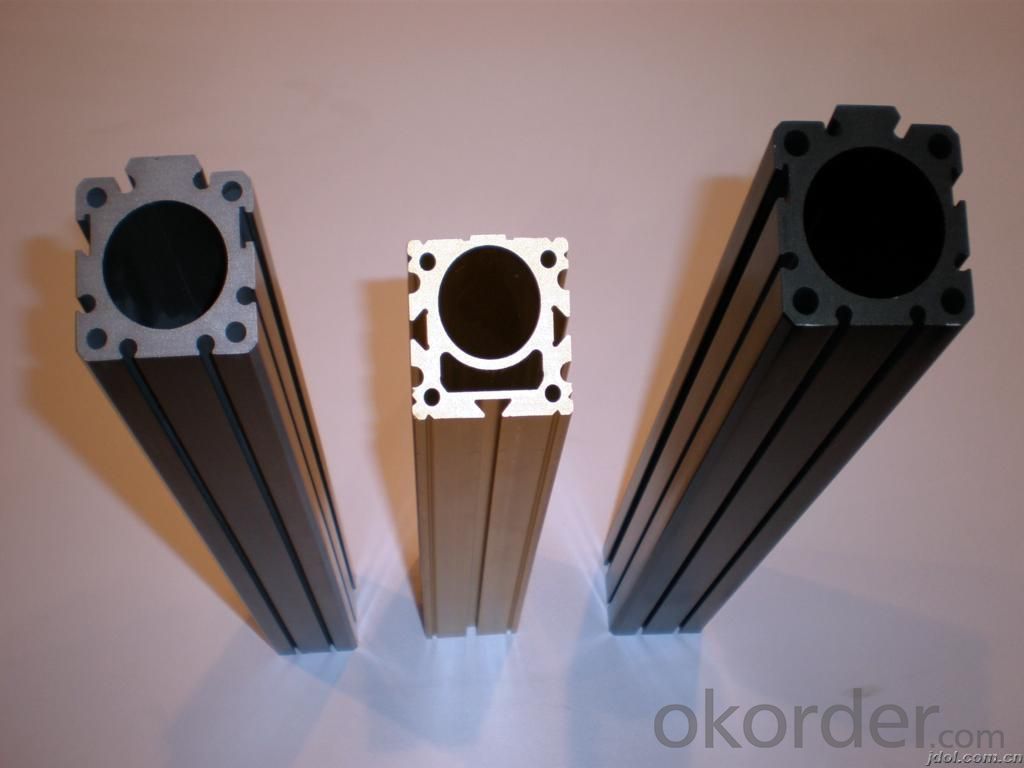
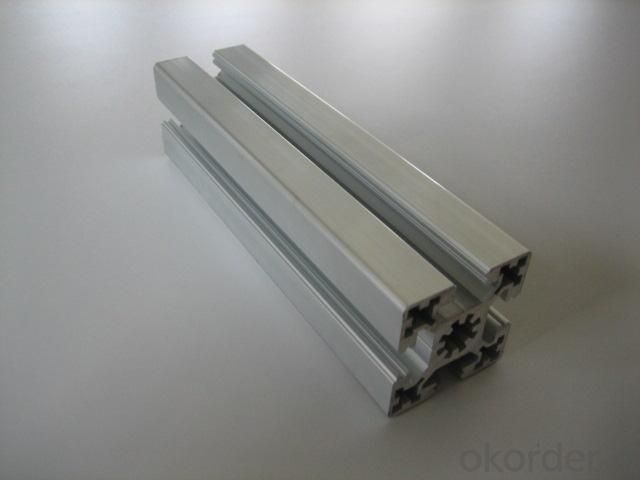
4.Customized Shapes Aluminium Extruded profile Specification:
1. Material: 6063,6061,6060,6005,6005A,etc.
2. Temper: T5 or T6
3. Finish: Mill finish, anodizing, powder coating, electrophoresis, wooden transfer or pvdf/carbon-flouride coated, polishing, brushing, sand blasting
4. Various colors: Silver, bronze, black, gold, blue, grey, champagne, bright, etc.
5. Machining: Cutting, punching, drilling, tapping, milling, bending, welding, CNC etc.
5.FAQ:
①How about your company?
A world class manufacturer & supplier of castings forging in carbon steel and alloy steel,is one of the large-scale professional investment casting production bases in China, consisting of both casting foundry forging and machining factory. Annually more than 8000 tons Precision casting and forging parts are exported to markets in Europe, America and Japan. OEM casting and forging service available according to customer’s requirements.
②How to guarantee the quality of the products?
We have established the international advanced quality management system,every link from raw material to final product we have strict quality test;We resolutely put an end to unqualified products flowing into the market. At the same time, we will provide necessary follow-up service assurance.
- Q: This question asks for the cost of an aluminum sheet.
- <p>The cost of aluminum sheets can vary significantly based on factors such as thickness, grade, surface finish, and market conditions. As of my last update, the price range for aluminum sheets could be anywhere from $0.50 to $5 per pound, but this is subject to change. For the most accurate and current pricing, it's best to check with suppliers or on metal exchange platforms, as prices can fluctuate daily. Always consider the specific requirements of your project to determine the exact type and grade of aluminum needed, which will also affect the cost.</p>
- Q: What is the dielectric strength of aluminum sheets?
- The dielectric strength of aluminum sheets is typically around 20-30 kilovolts per millimeter (kV/mm).
- Q: How do aluminum sheets perform in terms of dimensional stability?
- Aluminum sheets generally exhibit good dimensional stability due to their low coefficient of thermal expansion, meaning they are less likely to warp or deform when exposed to temperature changes compared to other materials.
- Q: Can the aluminum sheets be used for manufacturing chemical reactors?
- Indeed, chemical reactors can be manufactured using aluminum sheets. Renowned for its exemplary resistance to corrosion and remarkable thermal conductivity, aluminum is a suitable option for diverse industrial purposes, including the production of chemical reactors. Moreover, aluminum possesses the advantage of being lightweight and malleable, facilitating the creation of reactors with varying sizes and configurations. Nevertheless, it is crucial to acknowledge that selecting the appropriate materials for chemical reactors hinges on the particular demands of the process and the chemicals employed. In certain instances, environments characterized by corrosiveness or high temperatures may necessitate the utilization of more specialized materials.
- Q: Can the aluminum sheets be used for manufacturing architectural sunshades?
- Yes, aluminum sheets can be used for manufacturing architectural sunshades. Aluminum is a lightweight and durable material that is commonly used in the construction industry for various purposes, including sunshades. It offers excellent resistance to corrosion and can withstand outdoor exposure, making it suitable for architectural applications. Additionally, aluminum sheets can be easily customized and fabricated into different shapes and sizes, allowing for flexibility in design.
- Q: What is the maximum width available for aluminum sheets?
- The maximum width of aluminum sheets can differ depending on the manufacturer and specific specifications. Typically, aluminum sheets can be found in widths up to 72 inches or 1.83 meters. It should be emphasized that certain manufacturers may provide wider choices for specialized purposes. Furthermore, personalized dimensions can be acquired by placing specific orders, providing more freedom in selecting the desired width.
- Q: Are aluminum sheets suitable for outdoor signage?
- Indeed, outdoor signage greatly benefits from the usage of aluminum sheets. Renowned for its durability and resistance to weather conditions, aluminum is capable of enduring the relentless forces of the outdoors, such as rain, wind, and sunlight. Furthermore, its corrosion-resistant properties make it the perfect choice for extended outdoor usage. Moreover, aluminum sheets possess the advantage of being lightweight, ensuring effortless handling and installation. Additionally, they can be conveniently cut, bent, or molded to fashion diverse signage designs. Given its sleek and professional aesthetic, aluminum is widely favored for outdoor signage in both commercial and industrial environments.
- Q: Can aluminum sheets be used for honeycomb panels?
- Yes, aluminum sheets can be used for honeycomb panels. The lightweight yet sturdy nature of aluminum makes it a popular choice for constructing honeycomb panels, which are commonly used in aerospace, automotive, and construction industries for their strength-to-weight ratio and structural integrity.
- Q: I was quoted $5000+ to upgrade my house from 100A electric service to 400A. Part of the reason for the high cost is the cost of copper. What size copper wire is needed for 400A, and how much does it cost per foot? Would it be a lot cheaper to use aluminum wire?
- They can be joined but only through a suitable device marked specifically for aluminum to copper connections. See website below.
- Q: How do aluminum sheets perform in terms of thermal expansion and contraction?
- Aluminum sheets possess a relatively high coefficient of thermal expansion, causing them to expand and contract more than most other materials when subjected to heat or cold. The coefficient of thermal expansion for aluminum is approximately 23 x 10^-6 per degree Celsius. Consequently, for each degree Celsius rise in temperature, aluminum expands by 23 millionths of its original size. This thermal expansion and contraction characteristic of aluminum renders it suitable for various applications where temperature fluctuations are anticipated. For example, in the construction industry, aluminum sheets are commonly utilized for roofing and cladding purposes. These sheets can endure the thermal stresses resulting from changing temperatures without experiencing significant warping or distortion. Additionally, this particular attribute of aluminum makes it an ideal choice for the production of items such as cookware and heat sinks. Aluminum cookware heats up rapidly and evenly due to its high thermal conductivity, while expanding uniformly to prevent warping or deformation when exposed to heat. Similarly, aluminum heat sinks effectively dissipate heat generated by electronic components as they can accommodate thermal expansion without compromising their structural integrity. However, it is important to acknowledge that although aluminum sheets possess favorable thermal expansion and contraction properties, extreme temperature changes can still result in some dimensional alterations. Therefore, careful consideration of the expected temperature variations is essential when designing and utilizing aluminum sheets to ensure their optimal performance and durability.
Send your message to us
Customized Shapes Tread Plate Aluminum Extruded Profiles
- Loading Port:
- Shanghai
- Payment Terms:
- TT OR LC
- Min Order Qty:
- 5 m.t.
- Supply Capability:
- 2000 m.t./month
OKorder Service Pledge
OKorder Financial Service
Similar products
Hot products
Hot Searches
Related keywords
